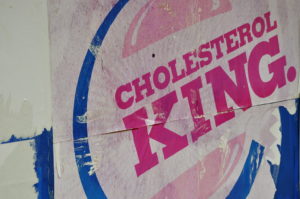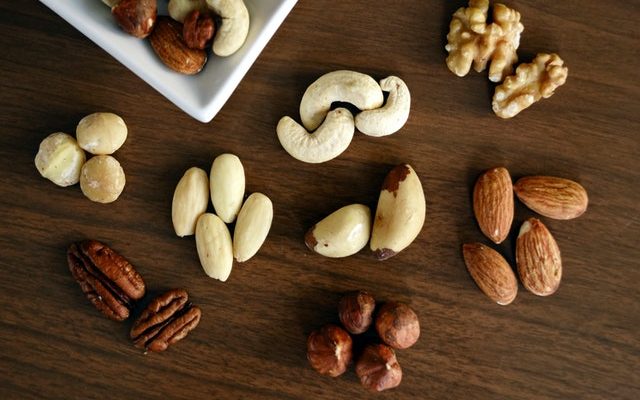Cholesterol – Is It Bad For You?
Cholesterol has always been frowned upon by a large number of people because high cholesterol is associated with heart diseases and many other illnesses.
But is cholesterol that bad as it is said to be?
This article will discuss a very controversial topic related to cholesterol being good or bad.
What is Cholesterol?

Scientifically speaking – cholesterol is an organic molecule. It is a type of lipid and is a sterol. Cholesterol is an essential component of the structural integrity of animal cell membranes and is biosynthesized by all animal cells as well.
In other words, cholesterol is a lipid that occurs naturally in the body. It is known to have a waxy texture and contributes to the fat percentage of the body.
Apart from this, it is essential for the cell membrane and is needed to regulate other enzymes and secretions in the body and also synthesize vitamin D.
Without cholesterol, the body will not be able to function properly. Hence, simply put, cholesterol regulates the proper function of the body.
Lipoproteins and Cholesterol
When you think about cholesterol and the health problems caused due to it, what you are thinking about is lipoproteins and not exactly cholesterol.
Lipoproteins are the main structures that are responsible to carry cholesterol into the blood.
Lipoproteins are made up of two components – lipids and proteins, hence the name lipoproteins.
There are many kinds of lipoproteins, but the two main lipoproteins associated with heart diseases are low-density lipoproteins (LDL) or high-density lipoproteins (HDL).
Low-Density Lipoprotein’s
LDL is the main component that is responsible for carrying cholesterol throughout the body. It comprises approximately 70% of the total lipoprotein found in the blood.
LDL is linked with many heart diseases due to its ability to block arteries and other blood vessels and cause plaque formation leading to atherosclerosis.
If the body has a higher level of LDL in it, it has an increased risk of attaining heart diseases.
LDL is classified according to size namely- Small LDL, dense LDL, or Large LDL.
Small LDL is the most problematic of them all and studies have shown people having higher levels of the small LDL particles are at greater risk of disease.
Even though the size of LDL particles hamper its effects, what matters more is the amount present in the body.
Hence, the higher levels of LDL in the body, the more prone you are to diseases related to cardiovascular health.
High-Density Lipoproteins
High-density lipoproteins are termed good cholesterol. They function in such a way that it helps the liver excrete and use up all the lipoproteins in the blood.
It also stops plaque build-up in the blood vessels and balances the overall cholesterol levels in the body
Dietary Cholesterol V/s Blood Cholesterol
The body has a very strict regulation system that keeps tabs on the production of cholesterol in the body. When we consume low-cholesterol foods, the body tends to make more cholesterol and when we consume high cholesterol food, the cholesterol production of the body goes down automatically.
This is the reason why foods having high cholesterol levels in them have very little impact on blood cholesterol levels.
But, in some people, high cholesterol foods do increase blood cholesterol levels due to genetic reasons. These people are termed as hyper responders and they make up approximately 40% of the population.
But while these individuals seem to have an increase in their LDL levels, the LDL here is mostly of the large type and not the small or dense. Large LDL has been shown to have a lower risk of heart diseases and hence, these individuals do not possess the risk as well.
On the other hand, due to increased LDL in the blood, the body starts producing HDL as well to compensate for the excess LDL, and hence it is exported to the liver for use and excretion, which leads to a decreased build-up and balances the cholesterol in the body.
Of course, there are exceptions when these individuals start consuming large amounts of foods with high cholesterol and the body fails to compensate and this leads to abnormally high levels of high cholesterol in the blood.
Is Cholesterol Bad?

Cholesterol, if maintained and regulated properly throughout the body is not bad at all. As it is produced naturally by the body, it is obvious to be essential enough.
Dietary cholesterol has not been proven to play a role in heart diseases even though cholesterol is said to be the bearer of heart diseases.
Oxysterols, a compound released when high cholesterol foods are subjected to heat – are said to be a reason for the increased risk of heart diseases.
Many nutritious foods fall under the list of high cholesterol foods as well. The key here is not to overeat them and avoid disruption of the cholesterol regulation cycle of the body.
Overweight individuals tend to have more cholesterol build-up in the body and are therefore asked to lose weight and engage more in physical activities to help maintain the LDL and HDL levels.
The whole point of maintaining the levels of cholesterol is to avoid increased levels of LDL in the blood which could be problematic.
The Bottomline
Cholesterol, even though thought of as a villain, is very essential to the body if maintained properly.
It works on cellular levels and helps produce a large number of sex hormones like estrogen and progesterone, testosterone, etc.
It also helps in aiding metabolism and is known to stimulate bile secretion and vitamin D production.
All these benefits of cholesterol state that it is not all bad if we take care of the amount of blood cholesterol levels in the body.
For more articles, refer here.

